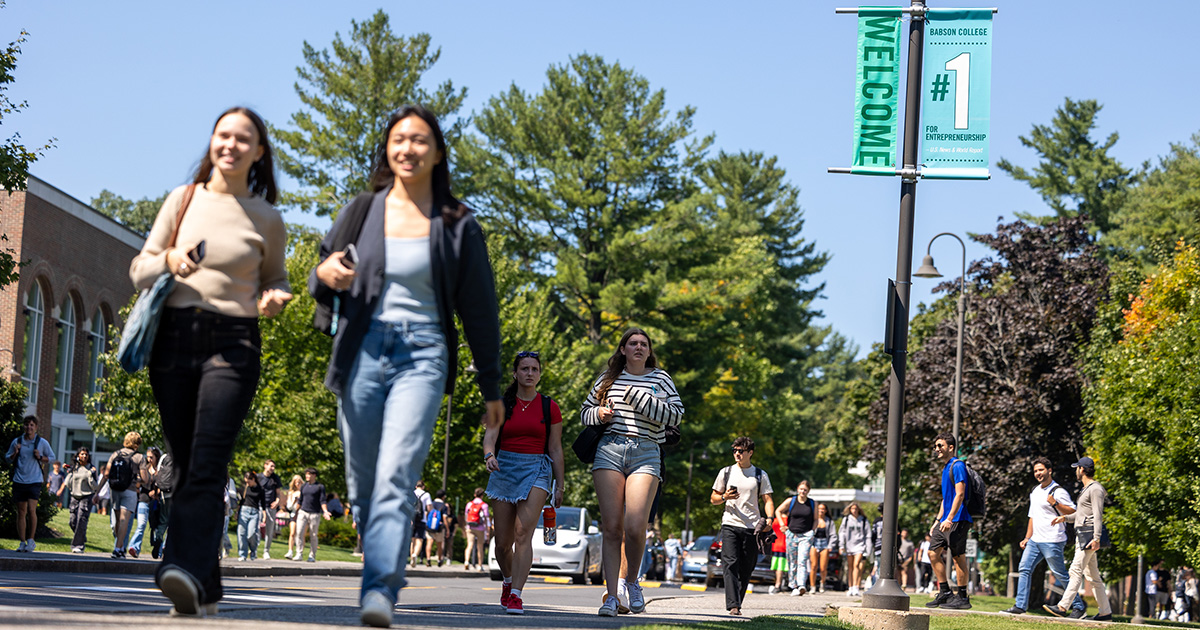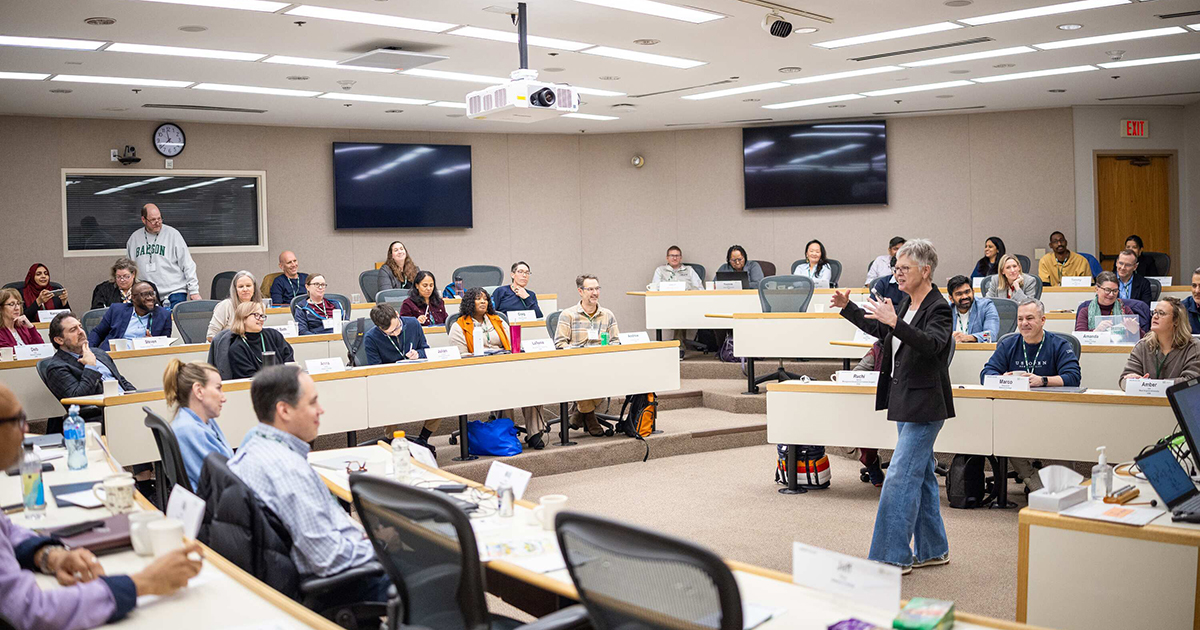A Veteran Helping Veterans
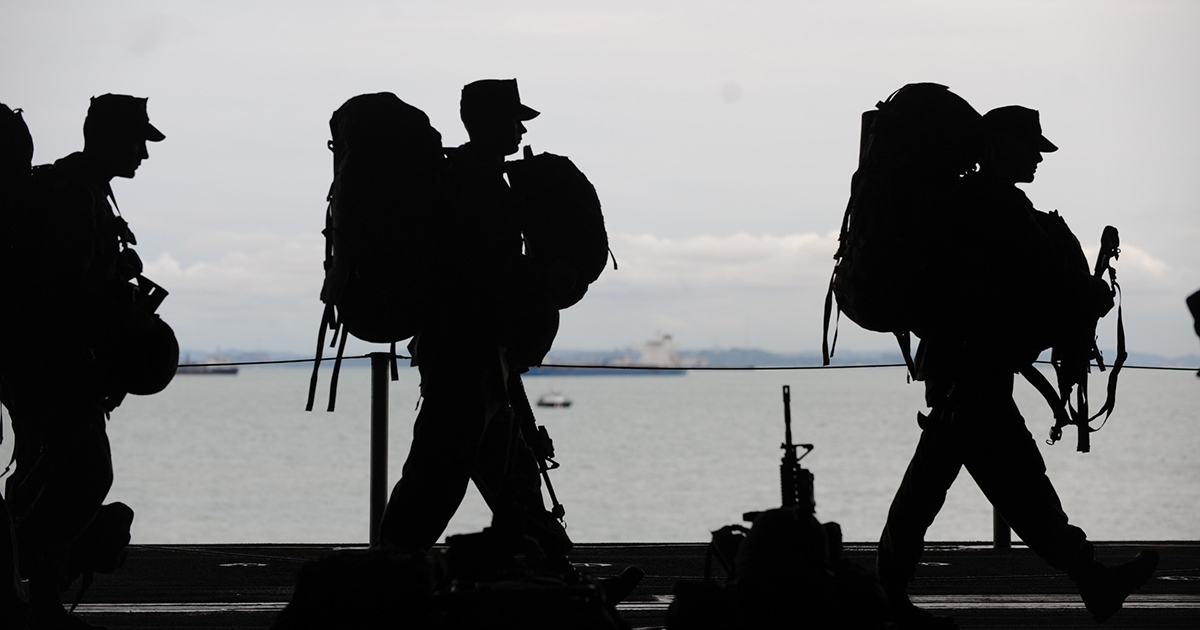
Richard Battista MBA’23, a 73-year-old Bronze Star recipient who served as a combat infantryman in the Vietnam War, will tell you he decided to sign up for Babson’s part-time graduate program because he’s a lifelong learner.
But, the Quincy, Massachusetts, native, who recently pitched a plan to reduce veteran suicides by using artificial intelligence algorithms, also has squeezed a lot of learning out of life.
“I’m an older student, and it’s been interesting because I’ve been able to impart a lot of my life experiences to different cohorts in different classes,” Battista said. “I get to meet a lot of new people, and when the class splits into groups I can show them different things I’ve learned over the course of my life.”
Battista is hoping his recent work as a life coach for dozens of veterans, combined with Babson’s entrepreneurial, evidence-based methods, can help slash the nation’s growing veteran suicide rate. Since 2010, more than 65,000 veterans have died by suicide, more than the number of combat deaths during the Vietnam, Iraq, and Afghanistan wars combined, according to the U.S. Department of Veterans Affairs.
“The transition can be very difficult for veterans when they get home, and I’ve worked with a lot of military veterans transitioning to civilian life,” Battista said.
The VA announced a new challenge in May, called Mission Daybreak, to stem veteran suicides. The plan asked inventors, entrepreneurs, and innovators to come up with new ways to prevent suicide by tweaking already existing methods, such as providing better access to the Veterans Crisis Line, preventing firearm suicides, and better incorporating the community and families into a veteran’s well-being.
“This is my chance to help again,” Battista said. “My mantra my whole life has been, ‘Live to give.’ If I can help, I will. It’s just my nature and how I live.”
A Call to Serve
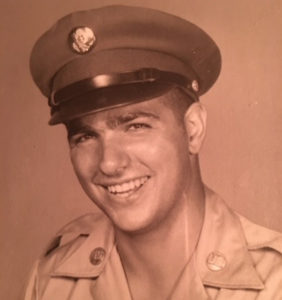
Babson grad student Richard Battista, before he served in the Vietnam War.
Battista was drafted to fight in the Vietnam War when he was 18, and although he endured extreme conditions and a daily drumbeat of enemy fire, he considers himself lucky that he avoided post-traumatic distress.
“I was living in a jungle for 14 months in 120-degree heat, thick with humidity and with bullets flying all around me,” Battista said. “But, I came home and that was just the end of it. I enrolled in college, went to school, and then went to work.”
Battista’s work took him to California, but he returned to Massachusetts and started a coaching business, called My Life Coaching, in 2013. While he didn’t work with seriously depressed veterans, his clients still grappled with emotional and physical issues that lingered long after the war.
“I’ve received many, many calls, believe it or not, in the middle of the night,” Battista said. “I have an intimate knowledge of the issues and the problems facing these guys, because I helped them deal with those problems every day.”
It’s those problems, and the language that veterans use to talk about those problems, that’s a key aspect of Battista’s Mission Daybreak proposal. Using past medical records and other internal VA records as data sets, artificial intelligence will monitor social media posts for phrases that indicate that a veteran is more vulnerable to suicide. Depending on how high risk the algorithms determine the veteran to be, the next steps include outreach to the veteran’s doctor, Battista said.
A Multifront War
Because battling suicide is complex and multifaceted, the VA will grant a swath of prizes totaling $20 million for the best proposals submitted.
“Suicide is preventable, and we all have a part to play. A diversity of solutions will only be possible if a diversity of solvers … answer the call to collaborate and share their expertise,” wrote VA officials on the Mission Daybreak site.
“This is my chance to help again. My mantra my whole life has been, ‘Live to give.’ If I can help, I will. It’s just my nature and how I live.”
Richard Battista MBA '23
Battista submitted his Mission Daybreak proposal in July, just days after he began a class with Professor Thomas Davenport, a Babson thought leader in artificial intelligence and co-founder of the International Institute for Analytics.
“What I have learned in this class has been phenomenal, and if I’m able to move on to phase two I’ve already picked up a lot of ideas I’ll be able to use,” Battista said. He recently asked Davenport to take a look at his proposal, and he is eager to hear back.
The VA will select 30 Mission Daybreak proposals to advance to phase two, an announcement they’ll make this month. The 30 finalists will get $250,000 each to continue working on their plans, and an additional 10 submissions will be awarded $100,000. The finalists also gain access to exclusive data sets, networking opportunities, mentorship, and other VA resources.
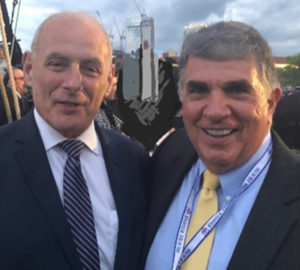
Richard Battista MBA’23, on the right, with Gen. John Kelly, former chief of staff to President Donald Trump.
Either way, said Battista, Babson’s Entrepreneurial Thought and Action® (ET&A™) methodology helped him strengthen his plan, and he is grateful for his experience at Babson.
“I’ve learned so much from these professors. They’re intelligent, caring, and they’re just good human beings,” Battista said. “My true interest is to help these veterans, and I hope that what I’ve learned at Babson will help me do that.”
Posted in Community

